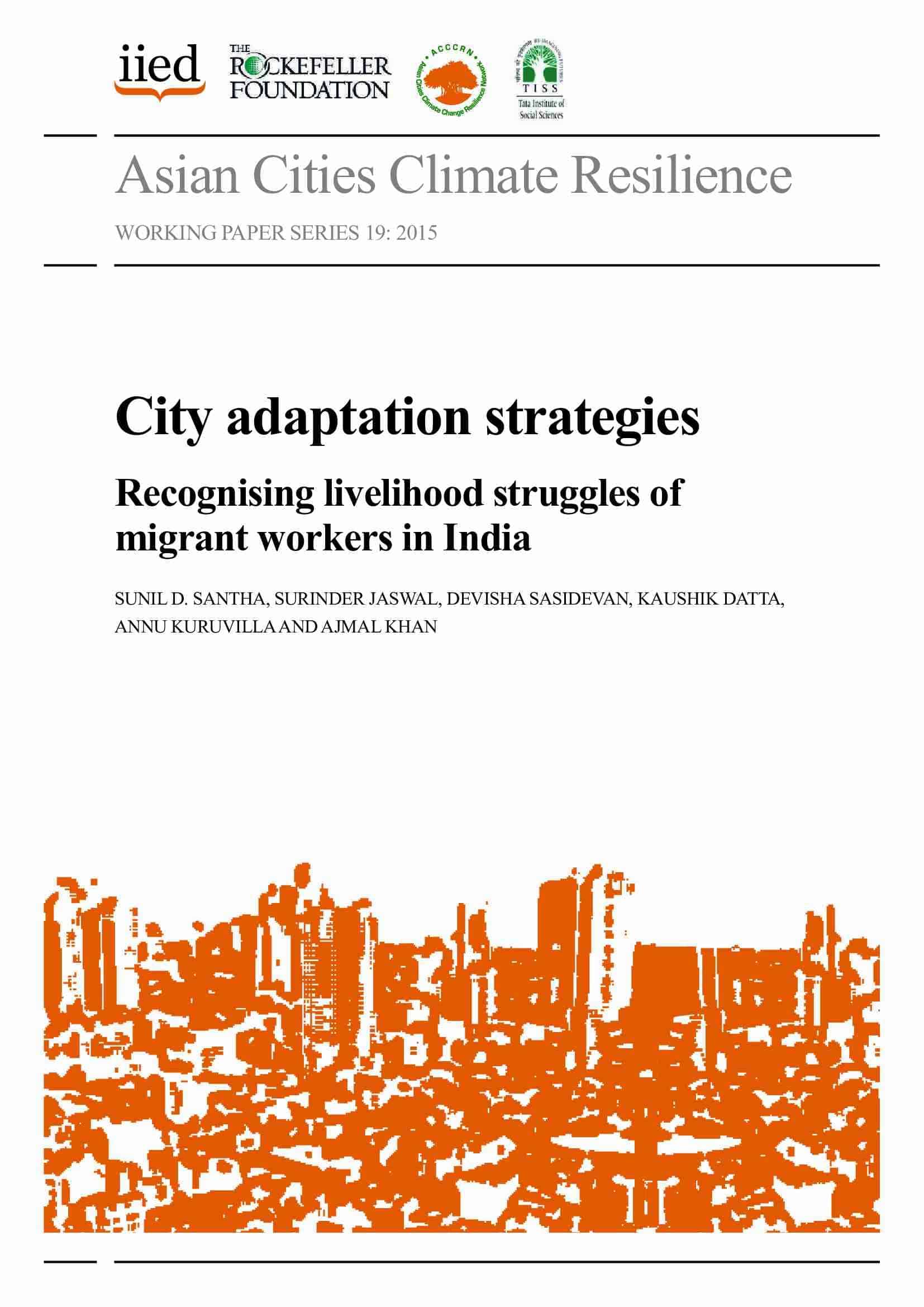City adaptation strategies: Recognising livelihood struggles of migrant workers in India
This paper examines the adaptation strategies of migrant workers to diverse livelihood risks and uncertainties in Indian cities. This research was part of a larger study that examined the vulnerability contexts of migrant workers to climate change and health inequities in three cities: Kochi, Surat and Mumbai. The findings of this paper are inferred from data collected through qualitative interviews from 45 migrant workers in the three cities. Insights are provided on the following adaptation strategies: mobility; livelihood diversification; risk pooling; asset conservation, storage and enhancement; self-remedy; market exchange; structural adaptation; and informal entrepreneurship. This paper asserts that informal entrepreneurship could be poised as a successful adaptation strategy. Such a framework also provides an opportunity to develop a framework that blends agency-based adaptation with a socio-ecological system perspective.
View list of all: Research Reports

